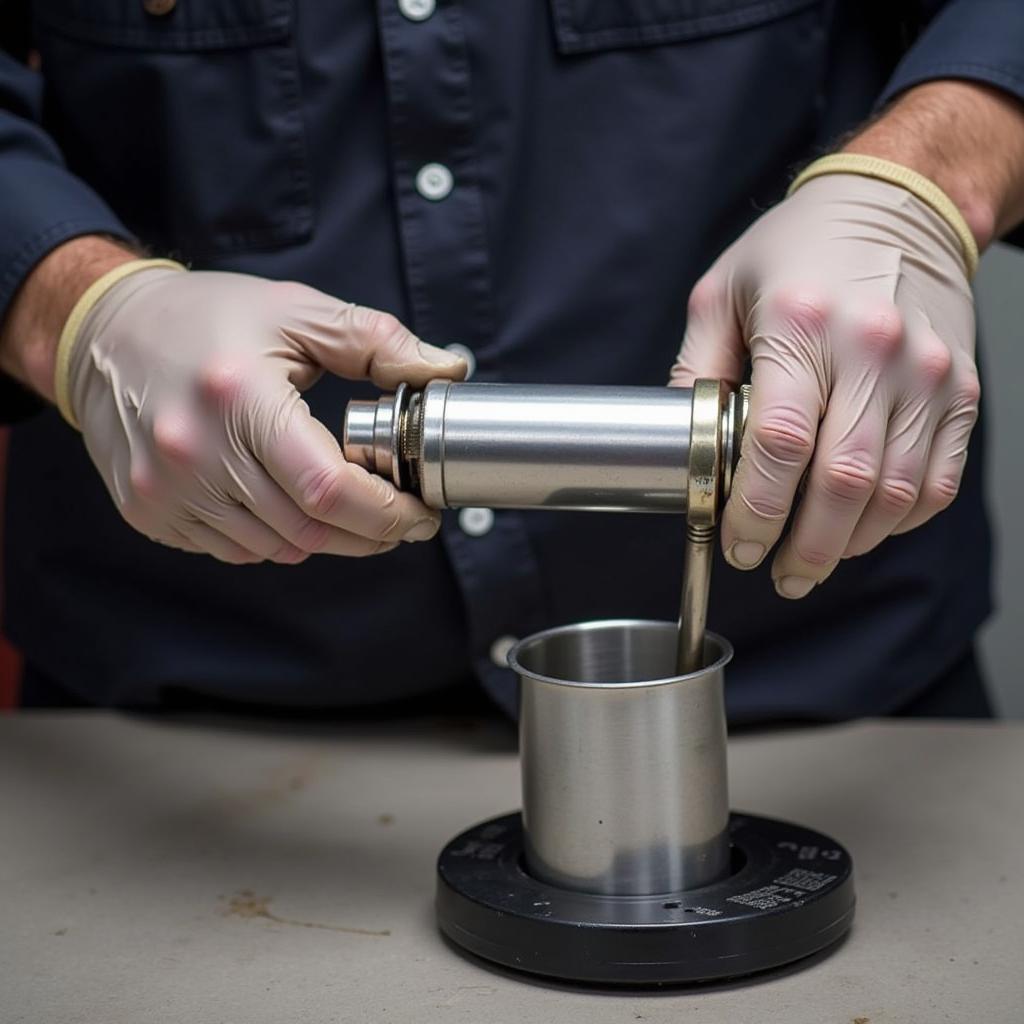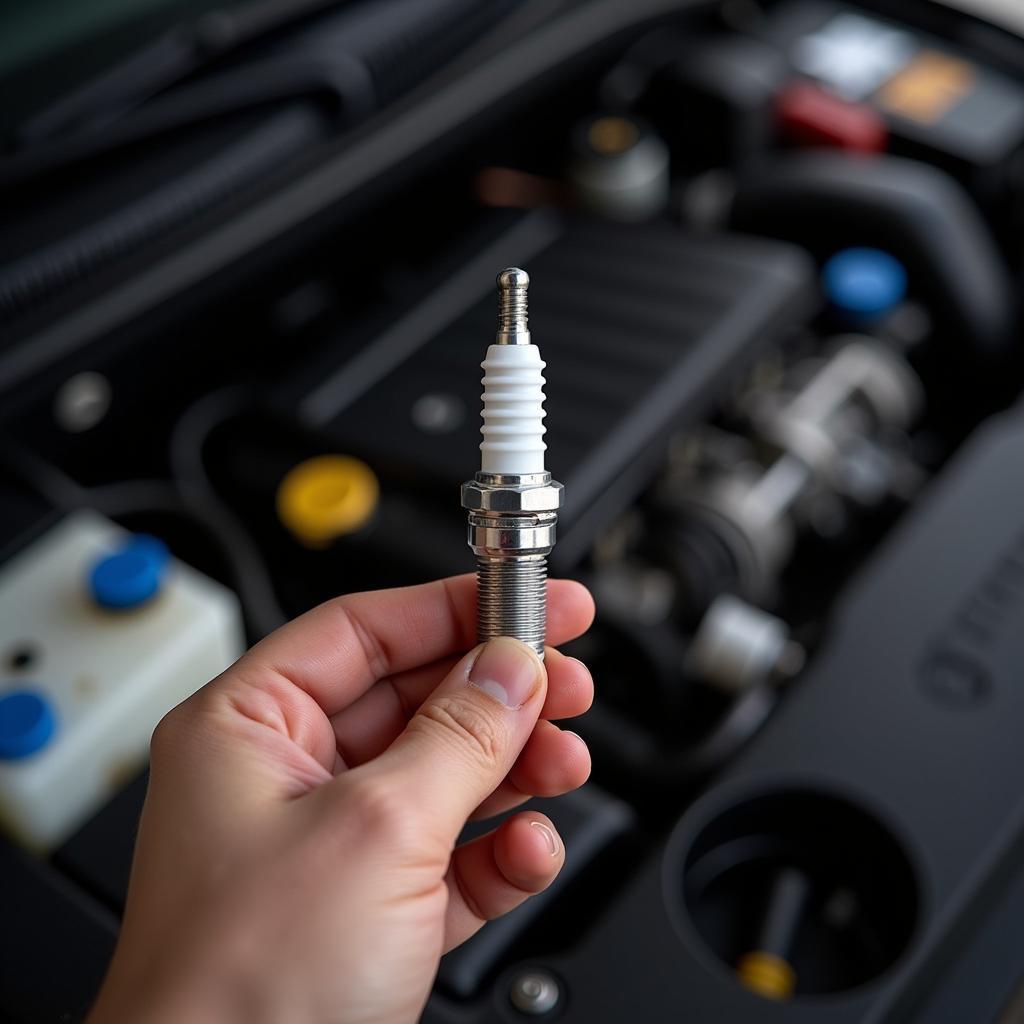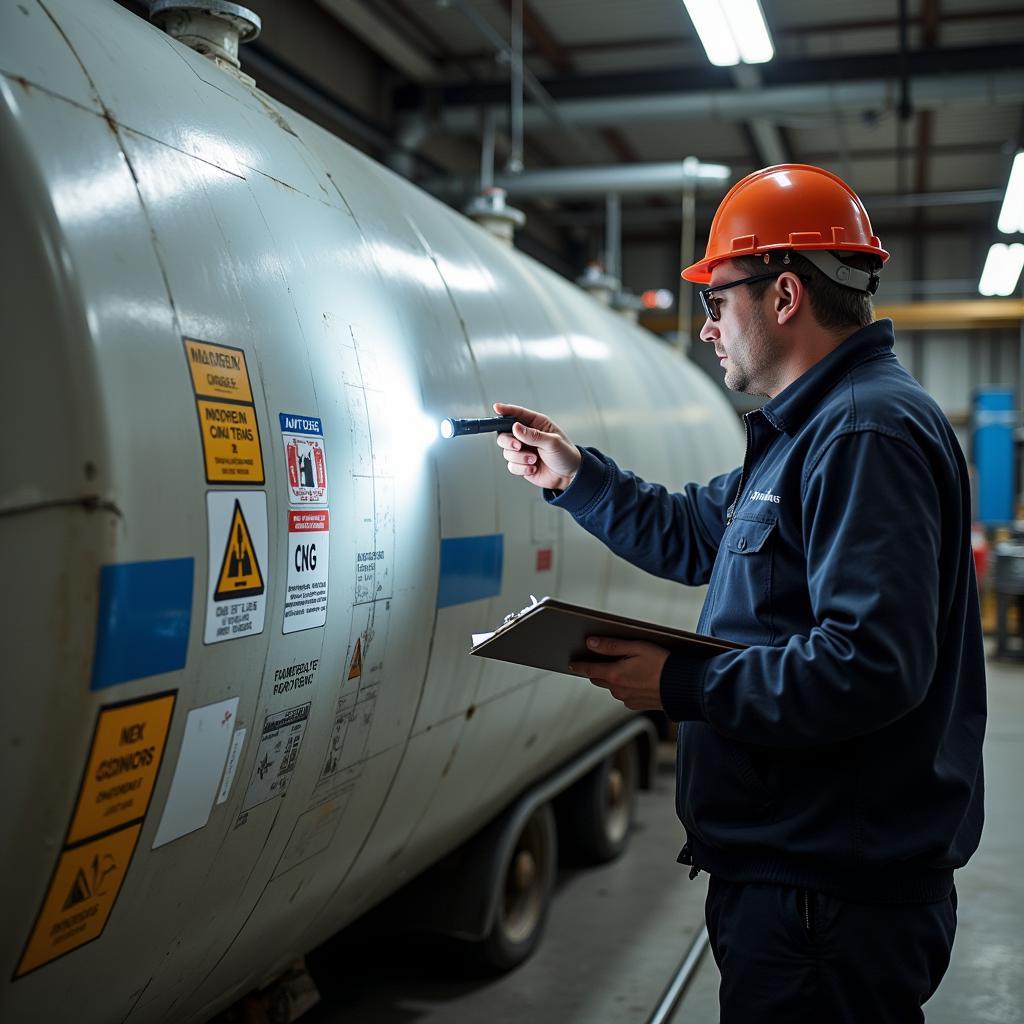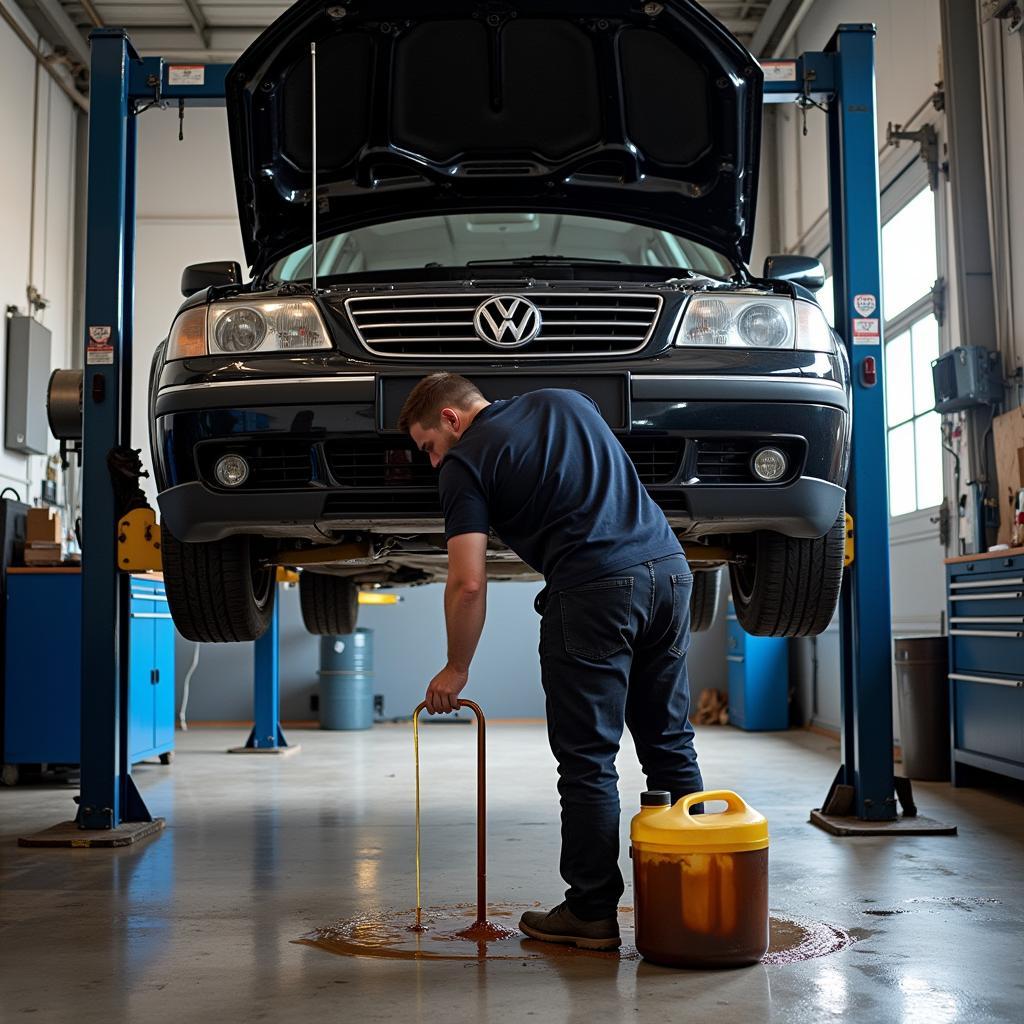Choosing between a CNG and a petrol car involves weighing various factors, and maintenance is a crucial one. While both fuel types demand regular upkeep, they differ in their maintenance requirements and costs. Understanding these differences can help you make informed decisions about your car and budget.
Understanding the Core Differences: CNG vs Petrol
Before diving into the maintenance specifics, let’s clarify the fundamental distinction between CNG and petrol as automotive fuels. CNG, or Compressed Natural Gas, is a gaseous fuel stored under high pressure. On the other hand, petrol, also known as gasoline, is a liquid fuel. This fundamental difference in their states of matter leads to variations in their engine interactions and, consequently, their maintenance needs.
CNG Car Maintenance: What You Need to Know
CNG cars, while environmentally friendly and economical, come with their own set of maintenance demands.
1. CNG Filter Replacement: Keeping it Clean
 Replacing a CNG Filter
Replacing a CNG Filter
A unique aspect of CNG car maintenance is the CNG filter. This filter plays a vital role in removing impurities from the CNG before it reaches the engine. Regular replacement, typically every 10,000-15,000 kilometers or as recommended by your manufacturer, ensures optimal engine performance and longevity.
2. Spark Plug Inspection: The Heart of Ignition
 Inspecting Spark Plugs in a CNG Car
Inspecting Spark Plugs in a CNG Car
While both CNG and petrol cars rely on spark plugs for ignition, CNG’s dry nature can impact spark plug lifespan. Regular inspection, ideally every 20,000 kilometers, is crucial to ensure the spark plugs are functioning optimally and replace them if necessary.
3. CNG Tank Maintenance: Safety and Longevity
 CNG Tank Being Inspected
CNG Tank Being Inspected
CNG tanks, being high-pressure vessels, require specialized attention. Periodic inspections, usually every 3-5 years depending on local regulations, are mandatory to ensure their structural integrity and safety.
Petrol Car Maintenance: The Conventional Approach
Petrol car maintenance, being the more conventional route, has its own set of routines.
1. Oil Change: The Lifeblood of Your Engine
 Changing Oil in a Petrol Car
Changing Oil in a Petrol Car
Regular oil changes are essential for both CNG and petrol cars, but the frequency might differ slightly. Petrol engines, due to their combustion process, may require more frequent oil changes compared to CNG counterparts.
2. Fuel Filter and Fuel Line Checks: Ensuring Smooth Fuel Flow
The fuel filter in petrol cars traps dirt and debris, ensuring a clean fuel supply to the engine. Regularly checking the fuel filter and fuel lines for any leaks or blockages is crucial to maintain smooth engine operation.
CNG vs. Petrol Car Maintenance: A Cost Comparison
When considering the cost of maintenance, CNG cars generally have a slight edge over petrol cars. This cost-effectiveness stems from the longer service intervals for certain CNG components, such as spark plugs and filters. However, the initial investment for installing a CNG kit in a petrol car can offset these savings in the short term.
Conclusion
Both CNG and petrol cars have their unique maintenance needs. Understanding these differences and adhering to a consistent maintenance schedule is crucial for optimal performance, longevity, and safety.
“Regular maintenance is an investment, not an expense. It ensures your vehicle operates at its best, saving you money on costly repairs down the line.” – John Smith, Senior Automotive Engineer at Autotippro
Need help navigating the complexities of CNG and petrol car maintenance? Contact AutoTipPro at +1 (641) 206-8880 or visit our office at 500 N St Mary’s St, San Antonio, TX 78205, United States. Our team of expert technicians is here to assist you.





Leave a Reply